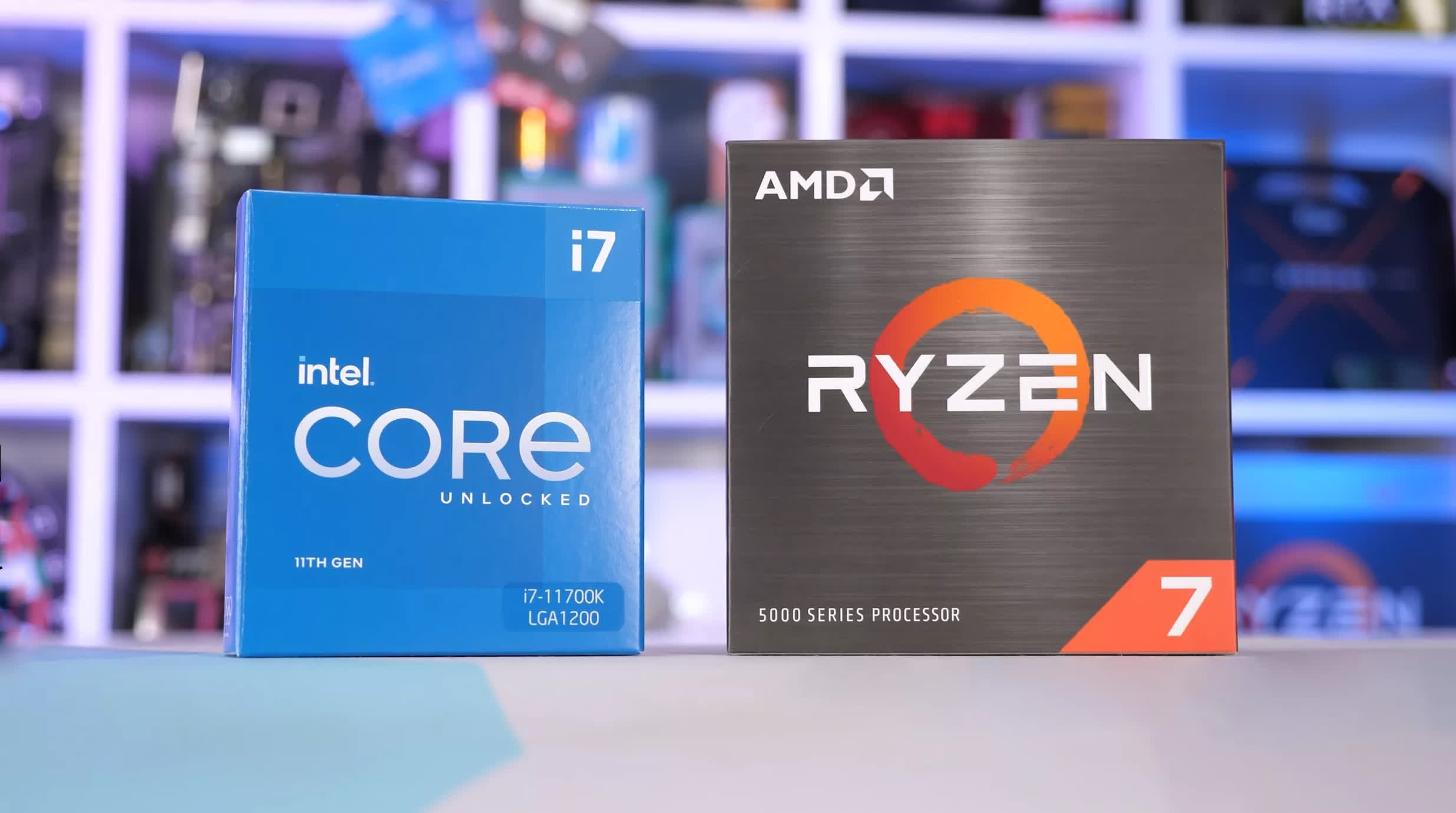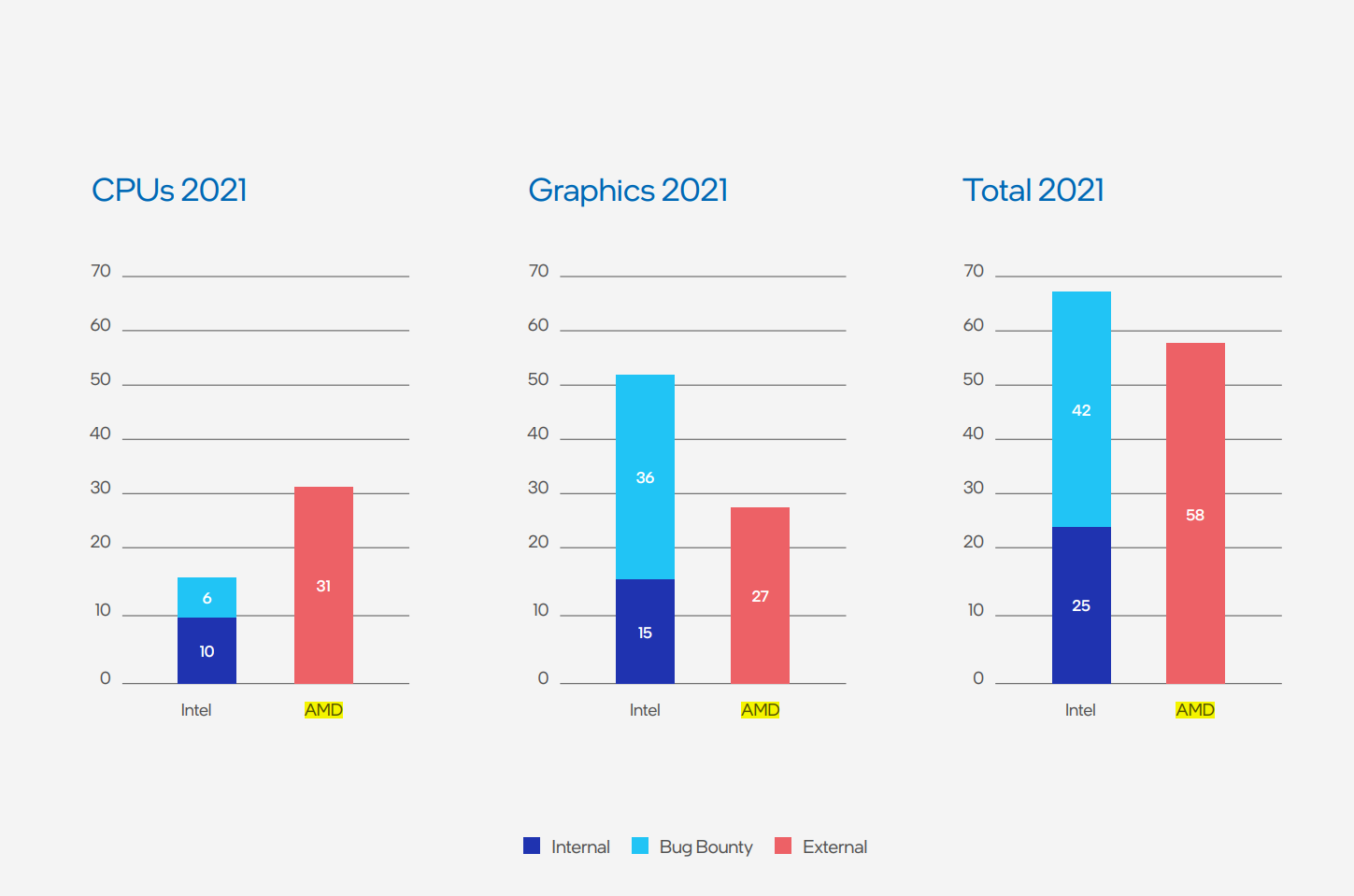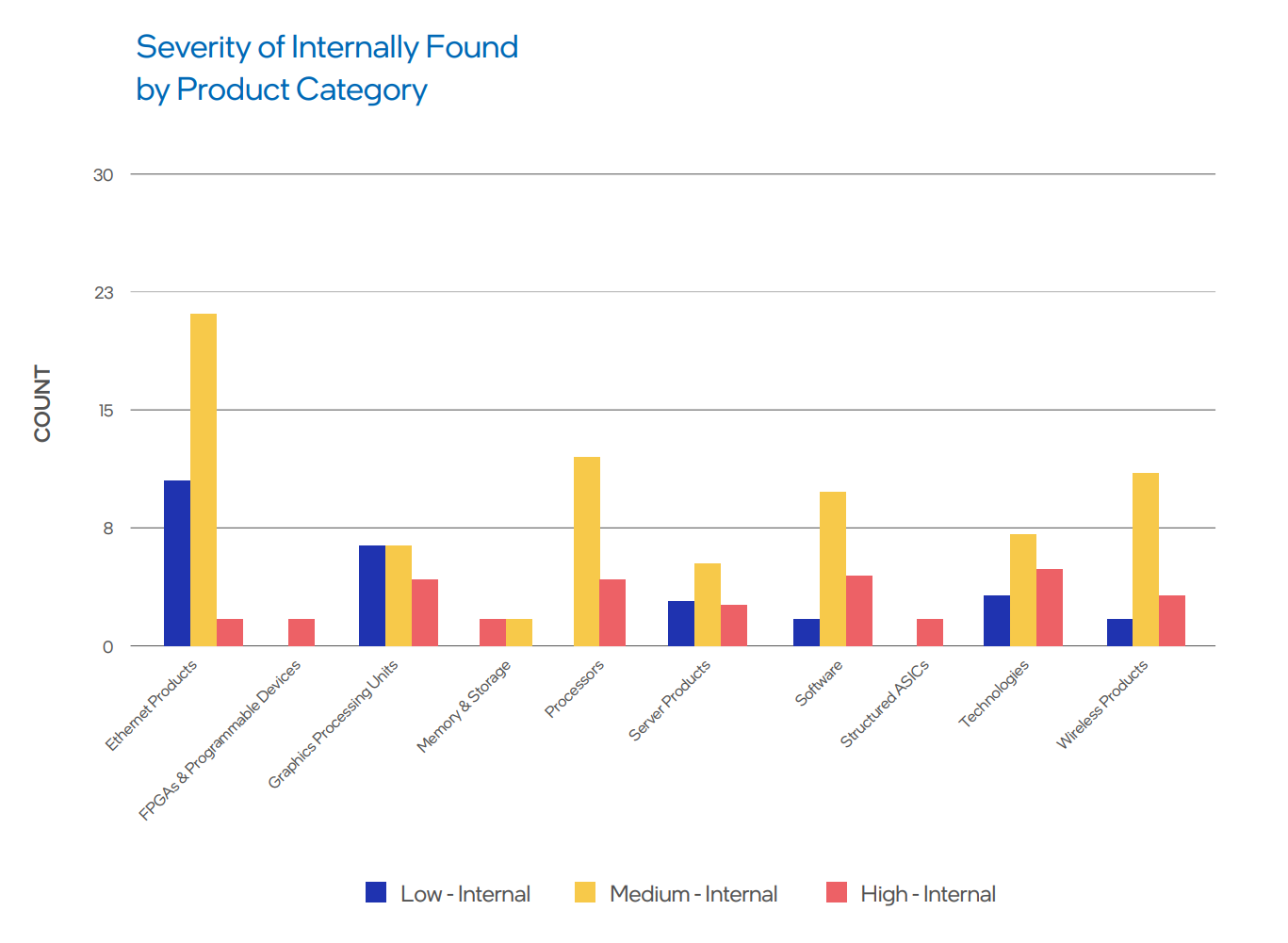What just happened? Intel’s public offensive against AMD has grown more intense recently. The latest diss from team blue is found in a report that states its CPUs faced 16 reported vulnerabilities last year while almost double that amount (31) were found in AMD’s processors. Intel did lead the way in GPU vulnerabilities, but it’s placing the blame for that stat on its rival.

Intel’s 2021 product security report starts by revealing that the company delivered mitigations for 226 product security issues last year, of which 113 (50%) were found internally by Intel employees, and 97 (43%) were reported through its bug bounty program.
One section of the report compares Intel and AMD Common Vulnerabilities and Exposure (CVE) counts. Of the 16 CPU vulnerabilities Intel reported in 2021, 10 were discovered internally, and six came from bug bounties. It lists AMD as having discovered 31 CPU vulnerabilities, all of which are classed as coming from “external” research.
When it came to GPUs, there were a massive 51 Intel vulnerabilities reported—15 internal and 36 from bug bounties. AMD had just 27. However, Intel does have its own caveat: the CVE INTEL-SA-00481 for Intel Core Processors with Radeon RX Vega M graphics contains 23 vulnerabilities affecting AMD components. Tom’s Hardware notes that these appear to be for the Kaby Lake-G processors that combined Intel’s 8th-gen CPU and AMD’s Radeon Vega GPU onto a single piece of silicon. They were famously used in Intel’s Kaby Lake G NUC, known as Hades Canyon, and the Dell XPS 15 2-in-1.
Intel also notes that it did not find any AMD-published CVEs in 2021 attributed to the company’s internal research—all information in the report is based on AMD CVEs that came from external research.
Earlier this week, Intel expanded its bug bounty program with a group of elite hackers under the Project Circuit Breaker banner. We’ve also seen CEO Pat Gelsinger throw shade at AMD recently, claiming the company is “in the rearview mirror” following the success of Alder Lake.
https://www.techspot.com/news/93268-intel-had-half-number-bugs-cpus-amd-last.html


